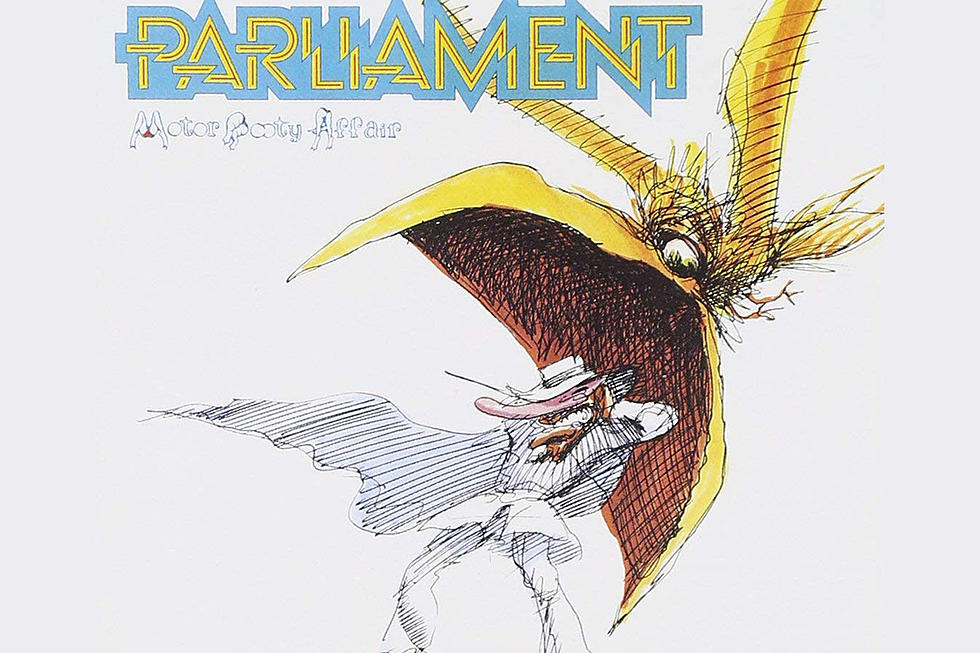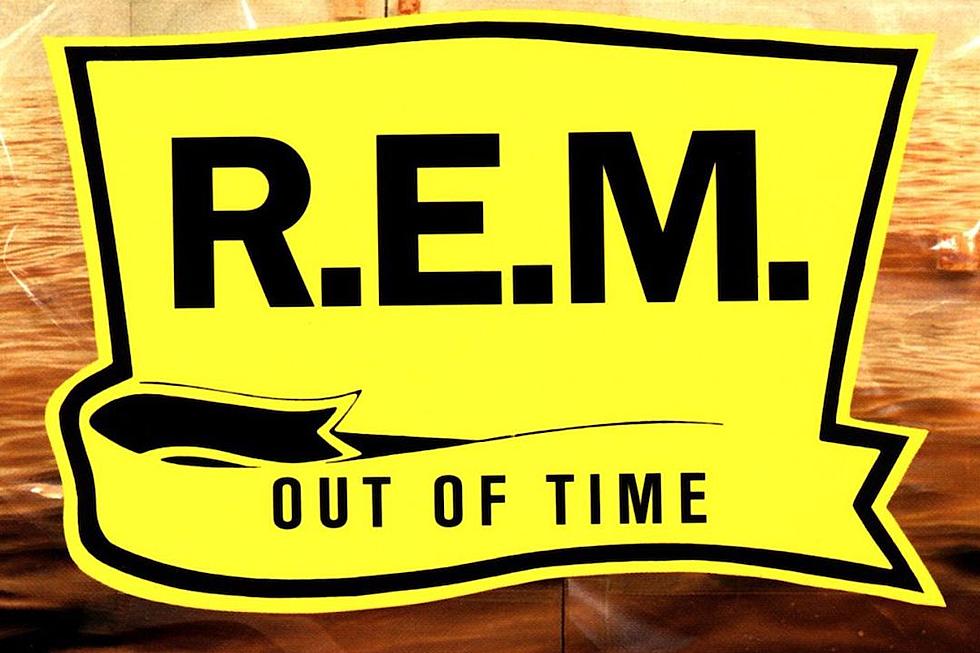40 Years Ago: Parliament Achieve Funk-Opera Perfection With ‘Funkentelechy Vs. the Placebo Syndrome’
In 1975, Mothership Connection beamed George Clinton and his band of intergalactic funk missionaries onto the upper echelon of the pop charts. Parliament, Clinton's mirthfully funk yin to his psych-rock outlet Funkadelic's yang, had steered their mothership to platinum status, fueled by the mid-'70s' funk revolution.
United in spirit, the Parliament-Funkadelic ensemble had charted their conquest with an army of virtuoso musicians—including veteran bassist Bootsy Collins and brass stalwarts Maceo Parker and Fred Wesley from James Brown's J.B.'s—cloaked in an intricately woven mythology, vibrantly chronicled by illustrator Overton Lloyd. Afro-futurism, science-fiction, rock 'n' roll, rhythmic hypnosis—these combined elements and others were deployed in service of spreading the P-Funk gospel.
But when the crowded collective unleashed 1977's Funkentelechy Vs. the Placebo Syndrome, audiences were reminded that Parliament's mission to deliver the world unto musical paradise was far from complete.
From one perspective, it seemed as though Parliament's expedition was just getting started. Just the previous year, Parliament had embarked on blockbuster Earth Tour (the recording of which was captured by the phenomenal Live: P-Funk Earth Tour double-album), with an advanced budget allowing for performances to captivate mass audiences with a heightened visual dimension.
The timing for such an extravagant boost in profile couldn't have come at a more opportune time: when George Clinton was plotting the next narrative frontier in the crystalizing P-Funk mythology. In his autobiography, Brothas Be, Yo Like George, Ain't That Funkin' Kinda Hard On You?: A Memoir, Clinton recollected that, around the time of Funkentelechy's conception, he'd been itching for an album of scale.
The bandleader reasoned, “In my mind, I was thinking all the way back to Davey Crockett, and then through the Beatles, through Motown, through Hair. Why couldn’t funk or soul music be just as sophisticated, just as wide-ranging, just as artistically successful?"
Clinton's question was answered with the release of Funkentelechy Vs. the Placebo Syndrome, a vivid interstellar concept album that sprawls its modest six tracks across 44 minutes of uninterrupted kinetic funk energy. The mosaic of characters, motifs and plot lines that the Parliament-Funkadelic family had brought to life on the Earth Tour earlier that year had converged to forge the loose sci-fi narrative's powerfully funkadelic climax.
Through the heroic travails of Starchild and Dr. Funkenstein (the titular figure introduced on 1976's The Clones of Dr. Funkenstein) and the evildoings of Sir Nose D’Voidoffunk (a Pinocchio-styled anti-funk menace), soulless commercialism is triumphantly eradicated and the spiritual nourishment of raw funk is salvaged.
In the comprehensive book George Clinton & The Cosmic Odyssey of the P-Funk Empire, journalist Kris Leeds unpacks the tale, interpreting that "the album’s story goes that after Dr Funkenstein turned the funk gene loose on the planet via his Clones." However, "because of the actions of [Richard] Nixon, the government and big business”—enabled by Mr. Nose D’Voidoffunk—Planet Earth is devoid of funk. All that changes when Starchild swing in to the rescue. Emerging with the bop gun he brandished on album opener, "Bop Gun (Endangered Species)" zapping Sir Nose with "funkasting rays," resulting not in the demise of the villain, but instead his concession to "give up the funk and dance.”
This firefight, along with additional action-packed spectacles portrayed on the album, would be incorporated into the live show, featuring guitarist Garry Shider hoisted over the audience, firing a "bop gun" (i.e., "strobe attached to a space rifle").
But the anti-commercial allegory delivered through the outlandish funk-opera could hardly strangulate the album's commercial appeal itself. Funkentelechy's second single, "Flash Light," featuring an iconic bass riff performed on the Minimoog synthesizer by the late Bernie Worrell, earned Parliament their second Top 20 hit, as well as the group's first R&B chart No. 1. The record would garner their second platinum certification.
The significance of the Funkentelechy constellation in Parliament-Funkadelic's ever-expanding solar system, it suffices to say, was not lost on its almighty creator.
“We had made fine records before. We would do it again," Clinton boasted in his memoir. "But if I had to pick one P-Funk album to take to the moon, I’d take Funkentelechy vs. the Placebo Syndrome. It did certain high-concept things with such a nice touch, and the music was tight as a motherf---ing drum."
50 Rock Facts You May Not Know
More From Diffuser.fm









